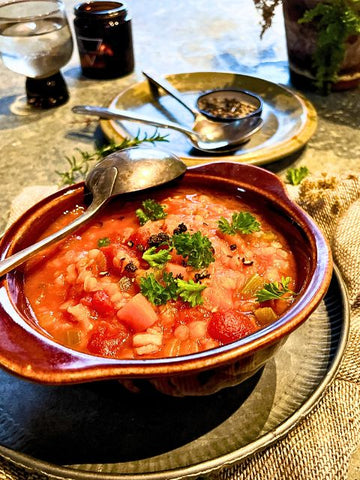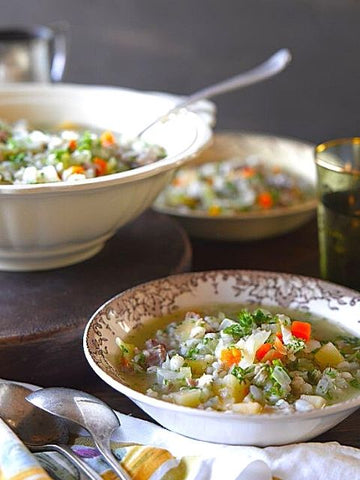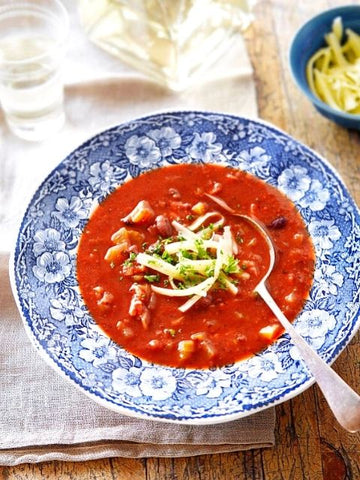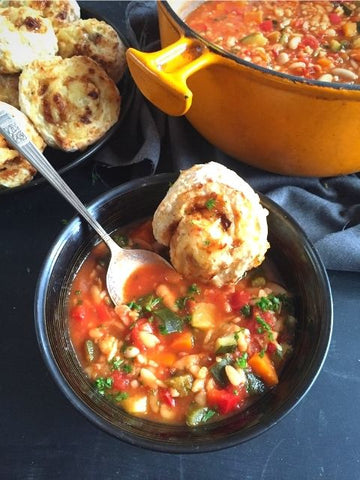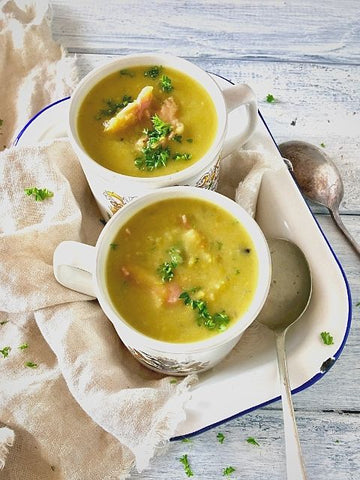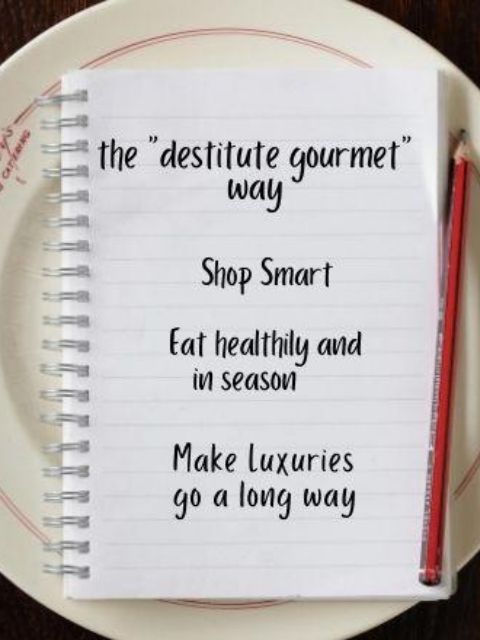Get a Grip on the Grocery Spend and Save More
Because we grocery shop so frequently, it’s the area you most likely to “blow out” the budget. The weekly grocery shop is also probably the area that you can potentially save the most week in and week out meaning big savings over the course of a year.
The weekly grocery shop doesn’t just include food though with new product ranges in the supermarket aisles every week, everything from Flat screen TV’s to outdoor furniture is for sale alongside the milk and bread. The subtle message is that these things are also necessary, just as the milk and bread are necessary, after all the supermarket or grocery store is where we go to buy our essentials.
Most people tell us they aim be in and out of the supermarket in around 45 minutes or less if they can manage it. So if you need to buy on average around 30 items*, factoring in the various brands, choices, special offers and out of stock items, you’ll have to make somewhere in the order of 205 financial decisions in 45 minutes, that’s roughly one decision every 4.5 seconds:
There is a tendency to simply put all the stuff you fancy in the trolley, with little or no discrimination. Do we really need it? Can we afford it?
If you want to eat well and spend less then you will need to approach the grocery shopping strategically.
We’ve received thousands of letters and emails from people who have been staggered at how much they’ve been able to save using the dg principles and how it has transformed their financial outlook.
There are 3 steps or principles, each is simple and easy to implement. It will cost you nothing at all to revolutionise your shopping methods and will save you thousands of hard earned dollars.
The dg Principles are Shop smart, Eat healthily and in season, Make a little of something luxurious go a long way. These 3 “dg” principals can be applied to any household or budget, freeing up cash for other important things in life like debt reduction, education, holidays and handbags.
Before you begin you need to establish what you are currently spending on groceries – Look up your bank or credit card statements for the last month and write down how much was spent on groceries, not just in the “big shop” but including any other smaller trips where you may have picked up one or two items. Total them up to get a true figure of your weeks grocery expenditure – yup takeaways too as they are a food expense.
Shop Smart
Plan the menu. For busy people the menu plan is an essential household management strategy.
Often the hardest part of feeding everyone everyday is actually just deciding what to make.
Menu planning is the easiest way to take the stress out of the daily dinner dilemma.
You can jump to the notes on menu planning
Make a list of all your basic “pantry essentials” these are all the things that you need to have in stock to keep the family ticking over – Not what you LIKE, just what you NEED
The essentials list should start with fresh fruit and veg. You can make a wider variety of nourishing meals by combining fresh produce with basics that you already have.
Then add the basics, flour, rice, eggs and seasonings, milk, butter, oil, baking powder, salt, dried pasta … Just the basics that YOU use regularly. Not what you think you might use if you ever get around to dusting off that recipe book…Your pantry staples.
Add a basic range of cereals, canned foods, sauces and spreads. Then you can include a basic range of frozen food – remember, it’s just the essentials – peas and beans are fine, ice-cream and frozen pizza? – They’re going on another list.
The essentials list looks quite different from one household to another as age; life stage and personal taste differ hugely.
After you’ve listed all your essential food items you need to add meat, and then essential cleaning products, pet supplies etc. Just the essentials though.
Make a list of Luxuries: Record anything your household likes, but is not essential to your survival. Ice cream, wine, fancy cereals, little dangly things to hang in the loo, biscuits, packet meals, fancy oils... kids foods like nuggets or lunch box
These lists are really important – it’s impossible to differentiate between a need and a want in the 4.5 seconds thinking time you have in the supermarket aisle. What the lists do is establish quite clearly the priorities, and puts some boundaries around what we buy.
Only shop once a week: If you are serious about saving money you need to decide that you will only go to the supermarket once a week.
If you think you can pop in for 2 minutes and buy one thing you are deluded. You’ll be in the supermarket for 20 minutes and you’ll probably buy 5 or 6 things.
If you run out of something, go without, or make do till the following week, you’ll be amazed at what you can manage. You will use up all the old cans of bean salad in the back of the pantry and learn to use the ingredients that you bought for a special recipe you never got around to. Necessity is the mother of invention.
Avoiding the emergency dash to the supermarket and takeaway will save you hundreds and hundreds of dollars. Over a few weeks you will get to know how many litres of Milk you go through a week, how many loaves of bread, how much loo paper and how long the laundry powder lasts. So you will not be over or under stocked. Use your essentials list to note how many of certain things you need to buy or how frequently you purchased bleach or oil.
Avoid semi prepared products and ready meals- It’s expensive to eat ready prepared meals and nutritionally they have severe limitations. Homemade food tastes better and is better for you.
Much convenience food is simple everyday stuff. Pasta sauces, gravies and seasoning mixes, salsas, dips and pastes, pizzas and soups, vegetables gratins, baked goods and breads. All bottled, bagged, boxed, snap frozen, tetra packed and canned for our convenience.
What's so great about cooking from scratch?
Homemade food is much more flexible than readymade.
- Leftovers can be frozen
- Ingredients substituted
- Improvisations made to accommodate specific dietary needs
- Seasonings can be adjusted to cater for individual likes and dislikes
- Recipes can be adapted to maximise ingredients that are in plentiful supply
- Homemade dishes will often be cheaper, with superior flavour and nutritional value Contains no additives, preservatives or ingredients you can’t pronounce
There are some brilliant convenience foods-tinned tomatoes, Baked beans, tinned sweet corn, stock, tomato paste and basic frozen veg and I wouldn’t be without them as they are inexpensive and versatile, just be selective.
What is realistic for one household may not be realistic for another. Likewise you might be able to manage more “from scratch” cooking in a few months as you’ve had more experience, or less because you’ve had triplets!
Just doing some baking is a good place to start – two or three, easy, “makes a lot”, recipes for muffins and biscuits can save you heaps. The more you do it, the better you get at it and the more it makes sense.
Before you shop make a proper list
Go through the pantry, check you've got everything you need for your weeks menu. Don't leave home without the list!
Eat healthily and in season
Learn to cook with pulses and legumes, lentils, kidney beans, chickpeas and the like are very cheap and are one of the foods nutritionists recommend we eat more of, because they are an excellent source of protein, iron and fibre and contain no fat. We use both instead of or in addition to meat.
Eat in season- It can be difficult to identify what is in season when you buy produce in the supermarket because there are ‘Plums” for example available all year round, they may have been imported at vast expense and refrigerated until they’ve lost all vestige of flavour but they are there.
At your local fruit and veg shop it’s likely the most plentiful foods are the ones e at the peak of their season and are therefore the cheapest and freshest. We eat them till the seasonal banquet rolls around and something else comes into season.
Eating seasonally ensures constant variety – instead of having frozen peas every night, we might be eating corn and courgettes and aubergines and tomatoes for several months, then more broccoli and cauliflower, celery, pumpkin and sprouts.
We use lots of seasonal vegetables in our meals. Generally ½ the evening meal will be vegetables, using the vegetables make the meat go a long way.
- Add extra vegetables to a family casserole and serve it in a ramekin with a cobbler topping, or in a pasty or wrap it in a flat bread or crust
- Fill the plate with some more inexpensive seasonal produce and you’ll not only extend your housekeeping money you’ll improve your health.
We borrow culinary styles and techniques, flavour combinations and seasonings from some of the best and most exciting cuisines in the world so the dishes are interesting, fashionable and delicious, they are also affordable.
Gradual changes to your household food culture are easy to introduce if you plan ahead.
Swap beef burgers for bean burgers or bean nachos instead of mince…It's not just cheaper it’s healthier! You’ll need to have a recipe handy and the ingredients in stock to make the changes actually happen. Having the menu plan decided ahead of time makes it easy.
Make a little of something luxurious go a long way
Choose only one or two luxury items (and only if you can afford it) each week. You will become far more careful about how you use luxury ingredients to keep meals interesting and you will find you use less.
Having access to some of your favourite foods or ingredients helps you stay on track, a little treat may prevent a major blow out later on. The trouble is that without a list we see so many things we like when we shop (that aren’t essential but are nice) so we end up over spending.






